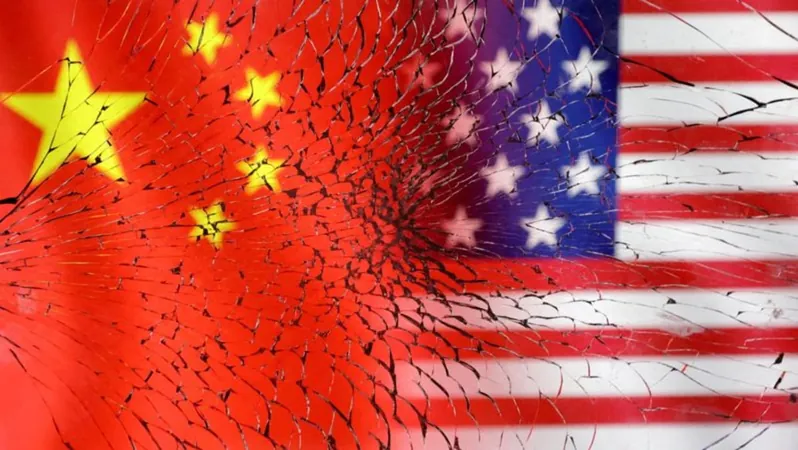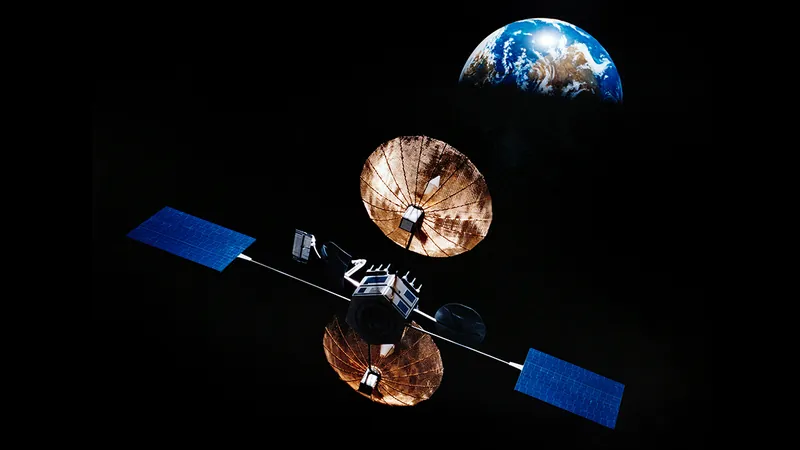
Uncertainty Reigns: How Trump or Harris Could Reshape China’s Tech Landscape
2024-11-01
Author: Wei
BEIJING: As the U.S. prepares for its next presidential election, the future of Chinese technology companies hangs in the balance, with divergent opinions on whether a potential Donald Trump win or a Kamala Harris victory would have a greater impact on the sector.
Executives within China's tech industry are grappling with the unpredictable nature of Trump, whose previous presidency ignited a trade war with China marked by strict export bans and tariffs, coupled with an aggressive approach toward national security concerns.
Trump's Impact on China’s Tech Sector
During his term from 2017 to 2021, Trump imposed significant restrictions on high-tech exports to China, aiming to curb unfair trade practices. A resurgence of his leadership could mean a return to those chaotic policies, which might either spell further sanctions for Chinese tech firms or, paradoxically, lead to unexpected reprieves as his combative style may stir discontent among U.S. allies regarding coordinated actions against China.
Harris's Approach
Kamala Harris, Trump’s Democratic rival, is projected to maintain a steadier approach, likely perpetuating the gradual changes to export regulations initiated by the Biden administration. Analysts suggest that under Harris, restrictions may be more systematic and long-lasting, posing their own form of challenge to China's semiconductor ambitions.
Tensions and Restrictions
Regardless of the election outcome, industry experts anticipate new restrictions aimed at curbing China’s technological advancements, particularly amidst rising tensions in the South China Sea and bolstered military links with Russia. This backdrop raises critical questions about the direction of U.S.-China relations and the potential fallout for Chinese tech firms.
Chinese Analyses and Perspectives
Interestingly, a number of Chinese analyses, diverging from state media narratives, present a candid assessment of how these political shifts could influence the tech landscape. For instance, around half of the studies conducted viewed a Trump triumph as detrimental in the short term due to a probable intensification of sanctions on sectors like semiconductors, pivotal for China's tech progression.
However, some analysts caution that Trump's unilateral policies may provoke opposition from allies, potentially unraveling efforts to suppress China's technological rise. For example, countries like the Netherlands may find ways to assist China in circumventing restrictions, especially concerning advanced equipment crucial for semiconductor manufacturing.
China's Shift Towards Self-Sufficiency
Amid this political uncertainty, a significant shift has occurred within China’s tech industry over recent years, steering it toward greater self-sufficiency. The trade war has prompted a surge in domestic procurement initiatives, with numbers skyrocketing from just four large-scale projects in 2016 to 169 in 2023, demonstrating a strategic pivot from foreign reliance.
Investments in Other Tech Sectors
Institutions like the Information Technology & Innovation Foundation highlight that while China's semiconductor development remains a key battleground, various other tech sectors are advancing rapidly. They point out that Chinese firms are investing heavily in artificial intelligence, making strides that place them close behind the U.S. in global large language model outputs.
Conclusion
As the election approaches, many Chinese tech executives find themselves in a perplexing position, uncertain of what new regulations or restrictions may emerge. "We’re operating under a new normal now," said one industry executive. "With so much unpredictability, we’re moving forward as quickly as possible. It’s about survival and adaptation in an ever-changing landscape."
With China’s tech sector now more resilient and equipped to weather fluctuations in global trade relations, the stakes are high as both Trump and Harris prepare their platforms. Their policies will ultimately shape the trajectory not only of China's dominance in tech but also the broader geopolitical landscape—will it lead to increased rivalry or unexpected collaboration in the technology sphere? Only time will tell.



 Brasil (PT)
Brasil (PT)
 Canada (EN)
Canada (EN)
 Chile (ES)
Chile (ES)
 España (ES)
España (ES)
 France (FR)
France (FR)
 Hong Kong (EN)
Hong Kong (EN)
 Italia (IT)
Italia (IT)
 日本 (JA)
日本 (JA)
 Magyarország (HU)
Magyarország (HU)
 Norge (NO)
Norge (NO)
 Polska (PL)
Polska (PL)
 Schweiz (DE)
Schweiz (DE)
 Singapore (EN)
Singapore (EN)
 Sverige (SV)
Sverige (SV)
 Suomi (FI)
Suomi (FI)
 Türkiye (TR)
Türkiye (TR)